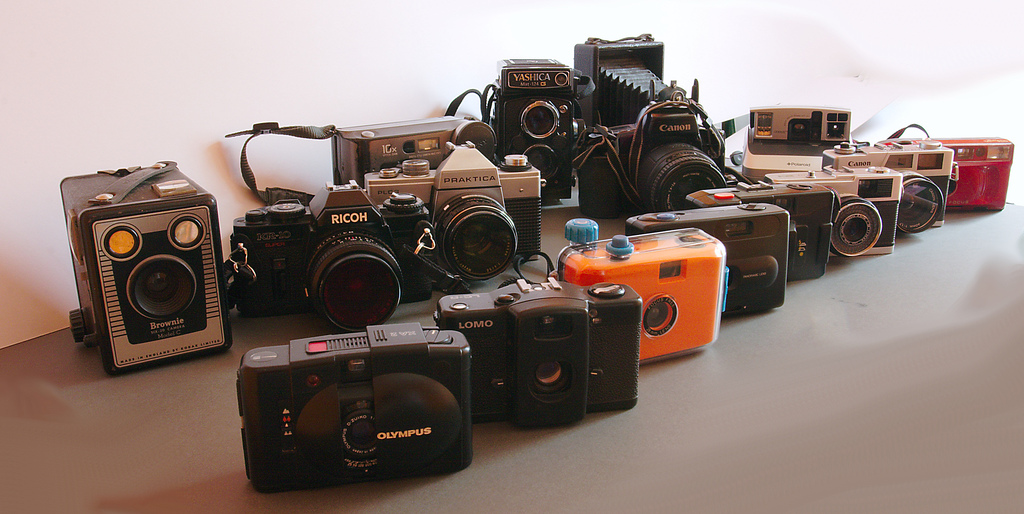A Camera is a Small Investment that Improves both Law Practice and Marketing
A Good Camera Will Help Your Law Firm in both Marketing and Practice
How can you improve both your law practice and your firm’s marketing program with one small investment?
Simple. Your firm needs a good camera.
In today’s market, there is a digital camera that fits every budget. From simple to use point and shoot models to more expensive Digital SLR cameras, there is an almost endless supply of cameras that could be right for your firm. Prices start around $50 and can go higher than you might imagine. Let’s examine the reasons for purchasing a camera before we figure out which type is right for your firm.
For Your Practice:
A camera will prove useful for your practice in the following ways:
- Documenting crime scenes and accidents – The more information you preserve from the scene, the better you will be able to represent your clients’ interests later. While the photos may not always hold up in court, they can help you notice things you missed in the chaos of a messy crime or accident scene. A better camera with more detail means that you have more information to work with. Whether you catch something as vital as blood spatter or as seemingly unimportant as a receipt or document that later provides your client with an alibi, you will be glad your camera captured details that your eyes missed.
- Interviewing witnesses – Most modern digital cameras also take good video. Recording an interview with a witness, or (depending on your state’s rules) a deposition, allows you to go through the interview repeatedly, combing it for information you may have missed.
- Around the office – Taking pictures of firm functions such as parties or outings can boost morale and teamwork. You also never know when there will be a problem with your building or office. You could potentially use your own photography if your firm ever gets into a dispute with a landlord or property owner.
For Marketing Purposes:
A good camera can improve your firm’s marketing:
- Social Media – When marketing your firm, it is important that the firm shows personality. Your face is usually more memorable than a logo. This is important when creating social media avatars and icons. When clients can see your face, they will feel more connected to you. You can also share relevant photos on networks such as Facebook, Twitter, and Google+. New social networks such as Pinterest are constantly sprouting up, so the justifications for taking pictures continually increase.
- Blogging – Many bloggers use stock imagery for their posts. You can make a post more personal by using your own photography. This helps foster interaction while cutting down on the costs of stock photography licenses.
Choosing the Right Camera for Your Firm:
There are endless reasons for your firm to own a camera, but it is up to you to decide just how serious your firm should be about photography.
SLR Cameras:
If you or someone at your firm is an avid photographer, or at least interested in learning, a Digital SLR is probably the right path for you. These cameras typically range from $400 up; with many high-end consumer models available for under $1000. SLR cameras produce excellent pictures, but their biggest draw is that they allow you to switch lenses. This allows you to use the same camera for many purposes. For example, by simply changing the lens, you could use one camera for all of these purposes:
- Standard photography: Most SLR cameras come with a “kit lens.” This lens will be versatile for many purposes and is good for beginners. A kit lens will be valuable at the scene of an accident where many types of pictures will be taken.
- Macro photography: A macro lens allows for extreme close-ups. This can allow you discover fingerprints and fibers on evidence. It can be used to show the difference between handwriting samples or paint chips. If your firm deals with evidence, this lens will be essential.
- Other lenses such as wide angle lenses and telephoto lenses will be useful in situations where photographs must be taken from a distance.
Point and Shoot Cameras:
Point and shoot cameras tend to be the cheapest cameras and also the easiest to use. They generally cost less than $350 and allow for fully automatic operation. With this type of camera, you may not be able to capture all the small details, but nearly every shot will be usable with no technical knowledge necessary. The main disadvantage with a point and shoot camera is that there are no upgrades or additional components that can be added if you want to increase the camera’s capabilities.
The most important part of purchasing a camera for your firm is making sure you get it as soon as possible. After all, even a blurry picture is better than not having a camera when you need one.
Featured image courtesy of Mike Warren licensed under creative commons.







